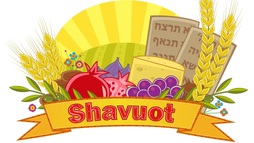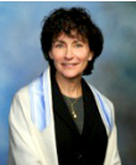What Is Hateful to You Do Not Do Unto Others
Shavuot 2020
The world feels different these days and all of us are doing our best to adapt to the necessary changes of living in a COVID 19 world. When we emerge from our homes, we may notice we are looking at others we encounter with cautious suspicion while taking a walk or while shopping in grocery or drug stores. We notice people not taking necessary precautions entering our body space, we hear someone coughing and we wonder as we say to ourselves, Uh-oh, is this person getting sick, is this person contagious? It’s not easy adapting to a COVID 19 world when all any of us want is a return to some sense of normalcy.
Shavuot 2020
The world feels different these days and all of us are doing our best to adapt to the necessary changes of living in a COVID 19 world. When we emerge from our homes, we may notice we are looking at others we encounter with cautious suspicion while taking a walk or while shopping in grocery or drug stores. We notice people not taking necessary precautions entering our body space, we hear someone coughing and we wonder as we say to ourselves, Uh-oh, is this person getting sick, is this person contagious? It’s not easy adapting to a COVID 19 world when all any of us want is a return to some sense of normalcy.
|
It’s good to know that some things never change, including the Hebrew calendar. Our holidays both religious and secular anchor us and pull us back to comforting traditions.
The holiday of Shavuot is nearly upon us. It is a time when we commemorate both God’s giving of the Torah on Mt. Sinai and our receipt of it. Since Torah is so pivotal to Jewish life, it is surprisingly a holiday that is not readily recognized and observed by certain segments of the Jewish community. Nevertheless, it should be, especially during our current uncertain times, because Shavuot reminds us of the central role our relationships play in our lives notwithstanding the challenges we encounter in a COVID 19 world, all of the restrictions, wearing masks, and physical distancing. We are, after all, social creatures. |
Shavuot also reminds us of the central role God plays in our lives as envisioned in Torah. Sensing God’s presence can be comforting not only during good times but perhaps even moreso during uncertain and fearful times. As God says to Jacob, I am with you (Genesis 28:15). I am with you when you go on your way and I am with you upon your return. I am always with you.
The words of Torah are the bridge between us and God. They allow us in a communicable form that is comprehensible to humans, words, to bridge what feels unbridgeable—that huge gap between what is human and what is divine. Torah is pivotal to our understanding of our place in the world, what our purpose is, how each of us has a unique role in helping to make the world a better place, something these days our world is sorely in need of. After all, the 10 Commandments not only concretize the Jewish people’s covenantal relationship with God for all time but give us substantive direction about our role in the world, what we are supposed to be doing with the time we have, what moves us ideologically, not politically.
The words of Torah are the bridge between us and God. They allow us in a communicable form that is comprehensible to humans, words, to bridge what feels unbridgeable—that huge gap between what is human and what is divine. Torah is pivotal to our understanding of our place in the world, what our purpose is, how each of us has a unique role in helping to make the world a better place, something these days our world is sorely in need of. After all, the 10 Commandments not only concretize the Jewish people’s covenantal relationship with God for all time but give us substantive direction about our role in the world, what we are supposed to be doing with the time we have, what moves us ideologically, not politically.
|
|
We consider the following questions along with so many more:
- What is our definition of kindness? - How do we relate to God and what is expected of us as we reach out to God? - What is expected of us as we relate to other human beings? - What is the cornerstone of being a Jew? |
These seem like questions which beckon us to learn endlessly all the days of our lives, (a good thing), to study Torah, Talmud, the minutiae of commentary, legal codes—but, really, all of Judaism is encompassed in a single statement made by Rabbi Hillel, a leading rabbi of the 1st century BCE.
The story is recorded in the Talmud. A non-Jew approaches Rabbi Shammai, another leading rabbi and contemporary of Rabbi Hillel, and asks him to teach him the entire Torah while standing on one foot. Shammai, incensed at the man’s impudence, chased him away. The man then approached Hillel, and asked him the same question. Hillel responded, “What is hateful to you, do not do to your neighbor. This is the whole Torah; all the rest is commentary. Go and learn it.”
There is nothing dismissive about Rabbi Hillel’s statement. It encompasses in seemingly simple word and deed what drives the Commandments and the ideology supporting them. They instruct us how to behave, and how not to behave, how to be in a relationship with our fellow human beings and with God, and how not to be. They embody an essence implicitly charging us to be a light unto the nations commanding us to act with kindness toward others not only because that is how each of us wants to be treated but because by doing so, we bring God’s presence into the world. In essence, we are commanded to be kind.
The Commandments are our roadmap, our guide. After all, life is often lived in the gray area. Nothing is black and white. It would be so easy to rationalize our behavior all of the time, but the Mitzvot come to remind us there are certain standards of human behavior. We are not allowed to murder, to kidnap, to covet. We are not allowed to worship anything other than God—not power, not money, not our leaders, not our celebrities, not even ourselves.
God commands us to pursue justice, acts of righteousness, (Deuteronomy 16:20), and 36 times in the Torah, to be kind to the stranger because we were once strangers in a strange land. In other words, we are commanded to engage in behavior which unites us, not to exploit differences for our own personal gain because of color of skin, religion, age, handicaps, national origin, gender, or sexual preference.
In a pandemic world filled with fear, it would be so easy to take care only of ourselves in an every man/woman for him/herself kind of environment. Torah emphatically says no to such an inclination. This is exactly the time to reach out and care for others and so many of you are doing so whether by leaving food for healthcare practitioners outside hospitals, erecting signs thanking them, taking care of elderly individuals even if simply by visiting them through windows or by gratefully recognizing those who often go unrecognized like grocery store employees who stock shelves with essentials or delivery people. All of these are acts of kindness.
The story is recorded in the Talmud. A non-Jew approaches Rabbi Shammai, another leading rabbi and contemporary of Rabbi Hillel, and asks him to teach him the entire Torah while standing on one foot. Shammai, incensed at the man’s impudence, chased him away. The man then approached Hillel, and asked him the same question. Hillel responded, “What is hateful to you, do not do to your neighbor. This is the whole Torah; all the rest is commentary. Go and learn it.”
There is nothing dismissive about Rabbi Hillel’s statement. It encompasses in seemingly simple word and deed what drives the Commandments and the ideology supporting them. They instruct us how to behave, and how not to behave, how to be in a relationship with our fellow human beings and with God, and how not to be. They embody an essence implicitly charging us to be a light unto the nations commanding us to act with kindness toward others not only because that is how each of us wants to be treated but because by doing so, we bring God’s presence into the world. In essence, we are commanded to be kind.
The Commandments are our roadmap, our guide. After all, life is often lived in the gray area. Nothing is black and white. It would be so easy to rationalize our behavior all of the time, but the Mitzvot come to remind us there are certain standards of human behavior. We are not allowed to murder, to kidnap, to covet. We are not allowed to worship anything other than God—not power, not money, not our leaders, not our celebrities, not even ourselves.
God commands us to pursue justice, acts of righteousness, (Deuteronomy 16:20), and 36 times in the Torah, to be kind to the stranger because we were once strangers in a strange land. In other words, we are commanded to engage in behavior which unites us, not to exploit differences for our own personal gain because of color of skin, religion, age, handicaps, national origin, gender, or sexual preference.
In a pandemic world filled with fear, it would be so easy to take care only of ourselves in an every man/woman for him/herself kind of environment. Torah emphatically says no to such an inclination. This is exactly the time to reach out and care for others and so many of you are doing so whether by leaving food for healthcare practitioners outside hospitals, erecting signs thanking them, taking care of elderly individuals even if simply by visiting them through windows or by gratefully recognizing those who often go unrecognized like grocery store employees who stock shelves with essentials or delivery people. All of these are acts of kindness.
|
Shavuot is a time of reflection, a time to be humbled by our relationship with God and with others. It is a time to be grateful for what it means to be a Jew and all the good we stand for in our often confusing, uncertain, and misguided world. It reminds us to be more than gracious, but to actually engage in acts of kindness by helping others, by focusing on what unites us rather than on what divides us and by doing so, we each become a beacon of God’s light unto the world.
|



